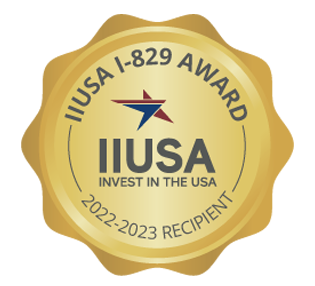H-1B visa is a work visa that allows foreign nationals to be gainfully employed in the United States. In order to receive an H-1B visa, the applicant needs to be qualified for a job that requires specialized knowledge, the applicant then needs to find an employer willing to hire the applicant and sponsor the H-1B visa. The H-1B visa process is initiated by the employer by filing an application with the U.S. Citizenship and Immigration Services (USCIS).
H-1B visa has an annual quota of 85,000 visas, out of these 20,000 visas are reserved for applicants with graduate degrees. In the last 5 years, USCIS received over 200,000 applications for H-1B visa resulting in computerized lottery. The computerized lottery does not consider the merits of the application, all it does is randomly select applications for adjudicators to examine. The USCIS officers then review the applications and opine on its merits. They either accept, reject, or issue a request for evidence. If the application is accepted, the applicant is allowed to work for the H-1B sponsoring employer.
While H-1B visa is the most common pathway for foreign nationals to work in the United States, it is very restrictive and often leads to frustration amongst the visa holders. The most common limitations of the H-1B visas are as follows:
- Not every U.S. employer sponsors H-1B visa. The H-1B visa employer pool is restrictive. Oftentimes, foreign nationals are unable to join their dream firms because they do not sponsor H-1B visa.
- Not every profession qualifies for H-1B visa. H-1B visa is popular amongst foreign nationals with STEM degrees or graduates of law schools and finance schools. However, if an applicant wants to pursue a career in arts, they may find it hard to qualify under the restrictive specialized skill definition of H-1B visa.
- Quota and computerized H-1B visa lottery. H-1B visa has an annual quota of 85,000 visas. Based on the recent numbers, only 33% of all applicantsget selected in the H-1B visa lottery. Further, the computerized lottery does not consider the merits of the application, it is a random selection regardless of the work experience or school an applicant has graduated from. Oftentimes, Ivy League graduates find themselves packing their bags and leaving the United States because they did not make the H-1B visa lottery.
- H-1B visa restrictions. Successful applicants sometimes feel trapped, as it is hard for them to switch employers. An H-1B visa holder can only move to H-1B sponsoring employer willing to file an application for a change of employer. Further, applicants find that they cannot switch professions and are restricted to the narrow scope of their job duties defined in their H-1B visa petitions.
- H-1B visa holders are dependent on their employment to remain in the United States. If they quit their job or are fired, they must find alternate employment within reasonable time, or they will be forced to leave the United States. This adds a lot of uncertainty in the lives of the applicants and is a common cause of distress amongst H-1B visa applicants with children. COVID-19 made life difficult for many H-1B visa holders as they feared layoffs during the pandemic without the possibility of being hired by another employer.
- Visa Stamping and COVID-19. Often H-1B visa holders find themselves trapped in the United States because they need to get a visa stamped once they leave the United States. Under normal circumstances, it is very easy; however, due to the COVID-19 environment, the U.S. Consulates around the world were closed, this meant if an H-1B visa holder left the United States, he/she could not be able to return to the United States unless the consulates reopen for stamping. This led to long-term separation in families where a member flew overseas and was not able to come back to the United States. This also led to some of the visa holders getting fired by their employers.
EB-5 visa is the fastest way for many foreign nationals to attain U.S. permanent residence or green card and avoid the many restrictions of H-1B visa. Among the many advantages of green card, the most important is stability and certainty of living in the United States.
For more information on GGG and EB-5, please follow us on YouTube, Twitter, Facebook, LinkedIn and Instagram.


